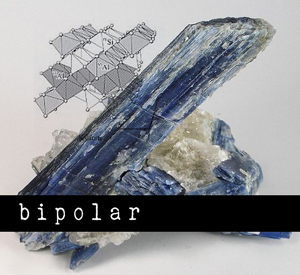
b i p o l a r
The top row of the mineral grid contained minerals without silica. Minerals in the
"Bipolar" category begin to contain silica, but in lower proportions (1 to 3 or
1 to 4 with oxygen). "Bipolar" applies primarily to
the mineral kyanite, which has different hardness depending on the axis: 4.5 parallel to the
long axis and 6 perpendicular to it. Kyanite is a member of the nesosilicate group, meaning that it has isolated
groups of silica tetrahedra rather than connected tetrahedra, but it is an aluminosilicate
and not as hard as garnet or topaz. Larimar is a trade name for the form of pectolite from
the Dominican Republic that is gorgeous sky-blue in color. Pectolite is a member of the
single-chain inosilicate group, which means that tetrahedra corners connect to form a Si2O6 chemical
structure and 1:3 proportion of silicone to oxygen. Like kyanite, it is more fibrous in structure than
other members of their groups. Howlite is a borosilicate with low silica content and relatively soft.
Gemstones grouped here:
howlite,
kyanite,
larimar.

Sky
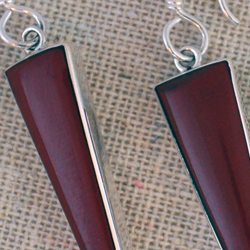
Spike
For jewelry use, howlite is often dyed and used as a less expensive alternative to turquoise.
However, it is generally softer than turquoise and shows less depth of color than the
genuine material.

Water

Kyanite Earrings
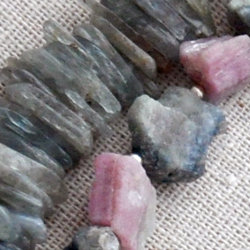
Reef and Shallows
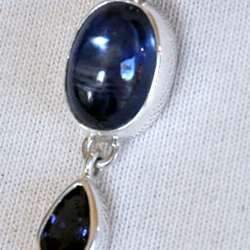
Circe
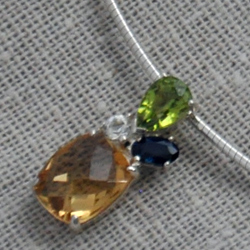
Bartlett
Kyanite is named from the Greek kyanos "deep blue". It occurs most often
in long flattened blades of deep enchanting blue, though it can also be blue-green
or green. Although "bipolar" in hardness behavior, kyanite is a tough rock,
forming under pressures over four kilobars (roughly 4000x atmospheric pressure
at sea level or pressure approximately 12km below the surface).
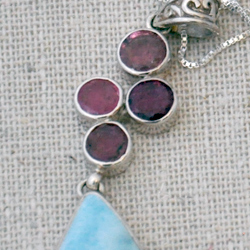
Berry Picking
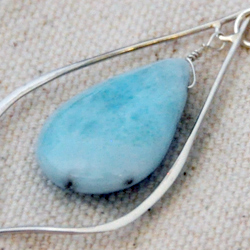
Headwaters
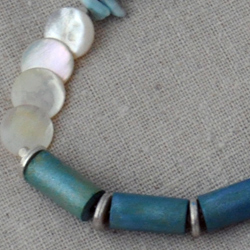
Laminar Flow

Waterfall
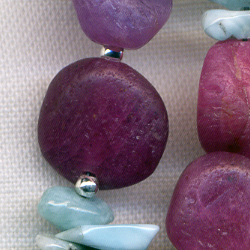
Eclectic
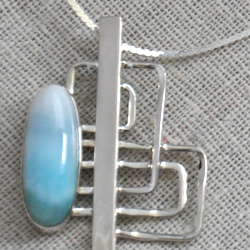
Swift
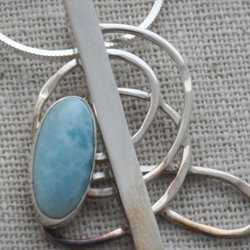
Serene
It is the rare blue color of larimar that makes it valuable and desirable. Larimar is found
only in the Caribbean, where copper substitutes for calcium in the otherwise common mineral
pectolite. It is named for the discoverer's daughter, Larissa, and the Spanish word for sea
(mar). Most samples come from the Los Chupaderos mine near the city of Barahona, in the
south-western region of the Dominican Republic. The blue color is photosensitive, meaning that
it will fade with time and exposure to light and heat.

